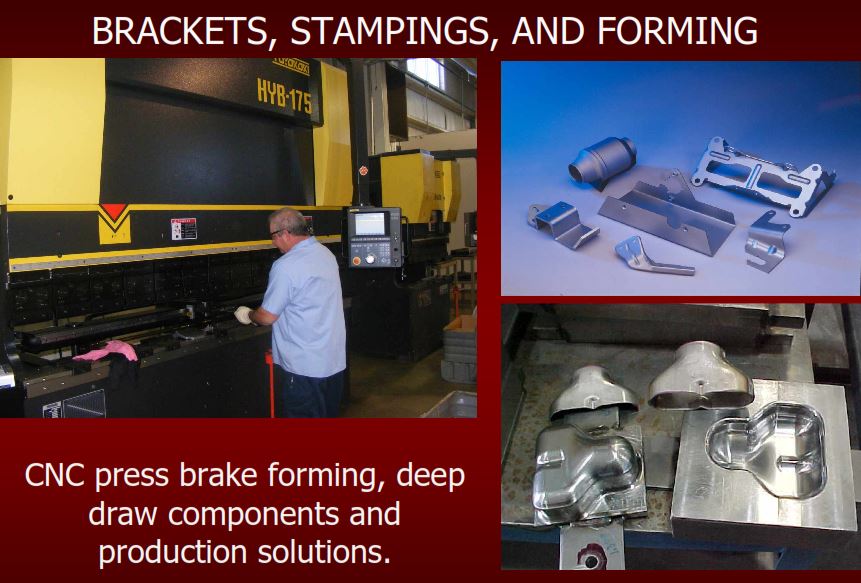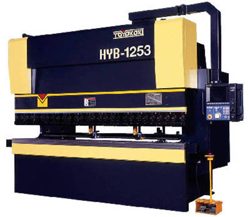CNC Brake Press Forming

 Brake Press Forming
Brake Press Forming
CNC Brake Press is an area that Watson Engineering Inc. specializes in, offering metal forming parts for prototype and small to medium volume productions.
Press Brake forming is a low-cost alternative to expensively tooled components. Skilled operators, along with precision press brakes can create parts up to 10’ in length while holding the tightest of tolerances.
CNC forming equipment for bending metal sheet and plate material is a press brake, also known as a brake press. Because it forms predetermined bends by clamping the workpiece between a matching punch and die.
CNC Brake Press Specifications
- State of the art Toyokoki CNC brake press ranging from 6 to 250 tons
- Electric and hybrid-hydraulic Rams using CNC encoders to deliver accuracy and repeatability (within .0002”!)
- Automatic thickness detection sensing – to ensure repeatability
- 6-axis servo driven back gauging for extreme accuracy
- Auto Crowning feature to provide accurate bend angles across entire width of components
- Extensive tooling library on hand to eliminate need for expensive tooling cost
- European Style press brake tooling allowing for offset and complex configurations
One of the oldest mechanical metal deformation processes was bending with a CNC Brake Press. Beginning the process with a piece of sheet metal formed along a straight axis. While forming or bending of sheet metal can be achieved in various shapes, main bend components include, “L”, “U” or”V”-shaped combinations.
Although press brake forming appears a simple concept, preserving accuracy can be quite difficult. Precision bending material and equipment are a role that factors into the quality of a finished product.
Examples:
 |
90° Rib Form |
 |
90° Bottom / V Bottom |
 |
Channel |
 |
Closing |
 |
Double Form |
 |
Hat Channel |
 |
Slight Offset |
 |
Offset |
 |
Open Hat Channel |
 |
Radius |
 |
Single Form |
 |
Wipe Die |
Commonly used materials for CNC forming include:
- Aluminum
- Brass
- Cold rolled carbon steel
- Hot rolled carbon steel
- Stainless steel
While tool materials for brake forming can include low-carbon steel, tool steel, carbide, and hardwood. In contrast, low-carbon steel is used for low production runs, die and punch base material, and soft to medium hardness materials. While tool steel for medium to high production, for medium to server bending, and for medium to strong materials.
In comparison, Carbide tools for high production runs on materials that require severe bending. Whereas hardwood tools for a short production run, for very simple bending applications, and managed on very soft materials.

 Brake Press Forming
Brake Press Forming